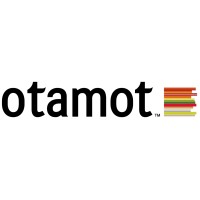Have you ever been sitting around a campfire with friends, or riffing with your partner about some great business idea you had when you were walking the dog, or driving to the grocery store? We all get ideas that pop into our head when we see a need, have an unfilled want, or notice the way something we’re interested in could be done better. Sometimes it’s easy to spit-ball with a close friend about big, potentially life-changing ideas like, “Hey, we should start a band!’ But we all know the unspoken truth when we say those things out loud — we’re probably never going to start that band and someday end up on a stadium tour. It’s those ideas that we really believe in, the ones that could actually be something real, that, ironically, we hold a little closer to our chest. They are harder to talk about.
Andrew Suzuka, the founder and creator of Otamot Foods, was no stranger to having good ideas and turning them into entrepreneurial successes. In fact, when the idea for Otamot Foods first popped into his head, Andrew was already running his own company. But success in one area didn’t make Andrew any more willing to share the new ideas he had brewing.
”You have to have a lot of self-confidence, but you also have to have enough self-awareness to know that you don’t know everything and you have to pull in people and you have to share your ideas with people,” Suzuka said. “And it’s probably, I would say the number one challenge of being an entrepreneur is sharing your idea before it becomes something. And if you can get over that, you’re on your way.”
Andrew had to walk a long path to get over that fear. Today, he knows collaboration is the only way forward, but what did it take to get to that realization? Who did he finally lean on, and how did all of this ultimately lead to Otamot landing on the shelves of Whole Foods? Let’s jump into this week’s episode of The Journey.
Main Takeaways:
- Sharing is Caring: No matter how great of an idea you have for a business, nothing significant will come from it without extreme dedication and investment of time, money and energy. You don’t need to worry about someone “stealing” your idea; the chances that they’ll take it to the finish line are almost nil. The power of sharing a good idea is getting early feedback on what could make it better and what could make it really work well.
- Be Nimble: Everyone talks about pivoting, but especially in the Consumer Packaged Goods space, being nimble and being able to negotiate with all of the different parties involved in getting your product to market is a useful skill.
- Your Support Network Should be Multi-Tiered: It’s important too have all sorts of people in your network, including outside mentors, industry advisors, and company board members, all of whom can help you make important decisions about your business. Make sure that you’re still tapping into your original support network as your business scales. Your close friends and family can offer support and perspectives that really help and uplift you.
Key Quotes:
“I’ve had this problem before where I have what I think is a great idea, and I don’t want to tell anyone. I remember with one of my ideas before I had to open a bank account and my banker was like, ‘What’s this business for?’ And I was like, ‘Why do I have to tell you?’ Reflecting on it later, that was silly. That was my mentality at the time. But it’s natural. Right? You think you have the next billion-dollar idea, but it’s just an idea. Actually sharing that idea with people that you trust — I’m not saying go make a blog about it and run something on the front of the Times, but what I am saying is it’s okay to share your ideas before you’ve actually put the sweat in to build it — to help validate it because you end up finding people that can actually bring your idea to life.”
“We looked like a million-dollar company when we’re a $1, when we were a zero-sales company. That really helps because you need people to, especially if they don’t know you…if they are just getting to know you, you have to really help them see your vision and understand who you are and what you’re trying to do. And that was important to bring any partner, really important even today.”
“Could Preggo do it? Sure. Were they doing it? No. Is any other brand willing to put in the hustle that I was? No. You have to be confident in yourself to do it to a certain extent. You have to be realistic. Other brands can come in here and crush you, but you just gotta be durable and you have to have a lot of self-confidence, but you also have to have enough self-awareness to know that you don’t know everything and you have to pull in people and you have to share your ideas with people. It’s going to be all right. I would say the number one challenge of being an entrepreneur is sharing your idea before it becomes something. And if you can get over that, you’re on your way.”
“It’s the ones that keep on believing in you sometimes to a point where they believe in you more than yourself for that moment in time, that you’re like that when you reflect back, you’re like, wow, ‘I got this.’ …Advisers will give you great tactical advice, but it’s the ones that are consistently positive and they’ll give you feedback… The ones that always believe in you, are an entrepreneur’s best friend. And typically they’re your best friends in real life anyway. And if I think about what has really kept us going, it is having that positive energy around you as much as possible, because there’s going to be roadblocks that you just have to smash through.”
Bio:
Andrew Suzuka is the Founder of Otamot Foods as well as the CEO of Bayard Advertising. He is a results-driven entrepreneur focused on building meaningful brands. He has over two decades of ad agency experience, and four years of experience in the food industry. At Bayard he led agency growth from $2.5MM to $50MM, and headcount from 10 to 250 plus. At Otamot, which he launched in 2019, he brought the sauce to Whole Foods nationally, as well as in select Kroger’s, Fresh Thyme Market, and Rouses. He is the proud father to Eveyln, his sauce taste-tester.
—
This season of the Journey is produced by Mission.org and brought to you by UPS. To learn how UPS can help your small business, go to UPS.com/pivot.




